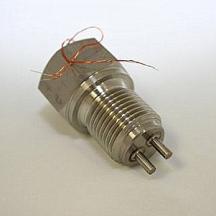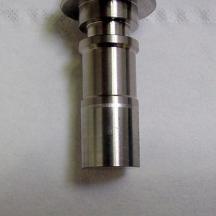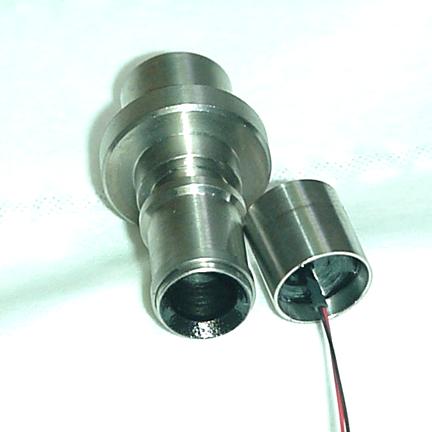Laser Welding Titanium
Welding titanium by using inert gas – flexible and precise with brilliant results
Because of its relatively low density, high stability and strength, titanium alloy (ASTM grades 1 to 5) managed to assert itself quickly in modern industry.
All common titanium alloys are reliably weldable through reproducible parameter selection, such as laser power, pulse peak power, frequency, and pulse shaping. A controlled inert gas atmosphere (helium or argon) prevents welds from becoming brittle. The small heat-affected zone ensures the material’s basic characteristics like strength and hardness remain unchanged.
All common titanium alloys are reliably weldable through reproducible parameter selection, such as laser power, pulse peak power, frequency, and pulse shaping. A controlled inert gas atmosphere (helium or argon) prevents welds from becoming brittle. The small heat-affected zone ensures the material’s basic characteristics like strength and hardness remain unchanged.
Pulsed laser welding of titanium is particularly beneficial for thin-walled components due to weight and strength advantages. When the process is executed accurately, high-strength and gas-tight welds are guaranteed. Depending on requirements, we will weld with or without the use of filler materials from individual manufacturing to automated series production.
So, if you are looking for a service provider you can absolutely rely on at any time, KURIOS is the right place to be. We will be happy to receive your contact regarding laser welding of titanium.
So, if you are looking for a service provider you can absolutely rely on at any time, KURIOS is the right place to be. We will be happy to receive your contact regarding laser welding of titanium.
Laser welding of titanium – possible areas of application
Titanium offers many advantages in terms of weight optimization, heat resistance, stability, and biocompatibility. We weld implants and precision assemblies for the field of medical technology.
Titanium alloys are often used in sensor technology when aggressive environments meet extreme temperatures. For those purposes, we are able to weld sensor cases with already integrated electronics, since the welding process is practically cold.
Titanium alloys are often used in sensor technology when aggressive environments meet extreme temperatures. For those purposes, we are able to weld sensor cases with already integrated electronics, since the welding process is practically cold.
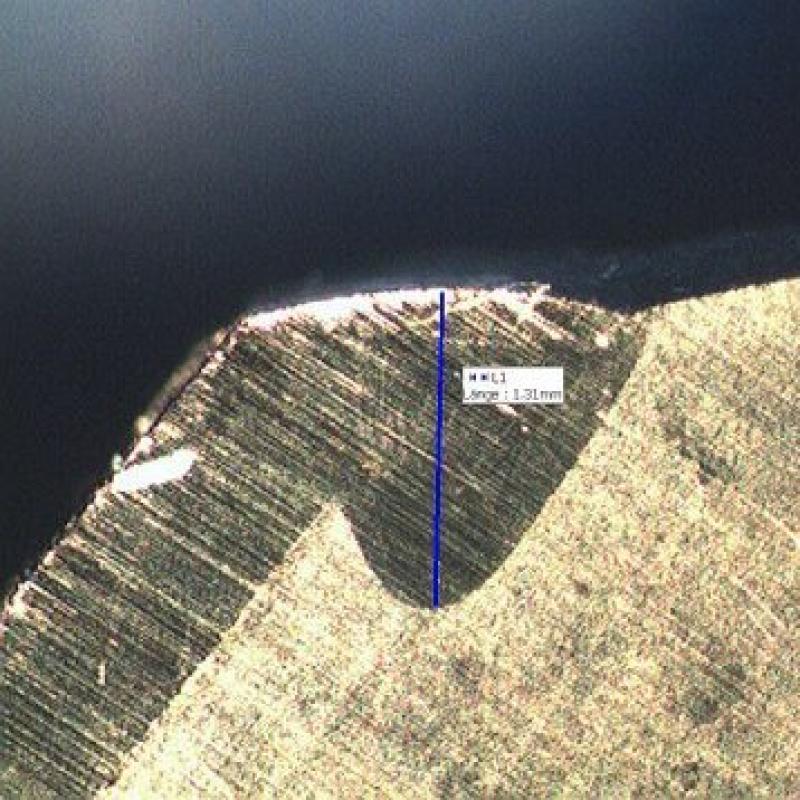
Macrosection
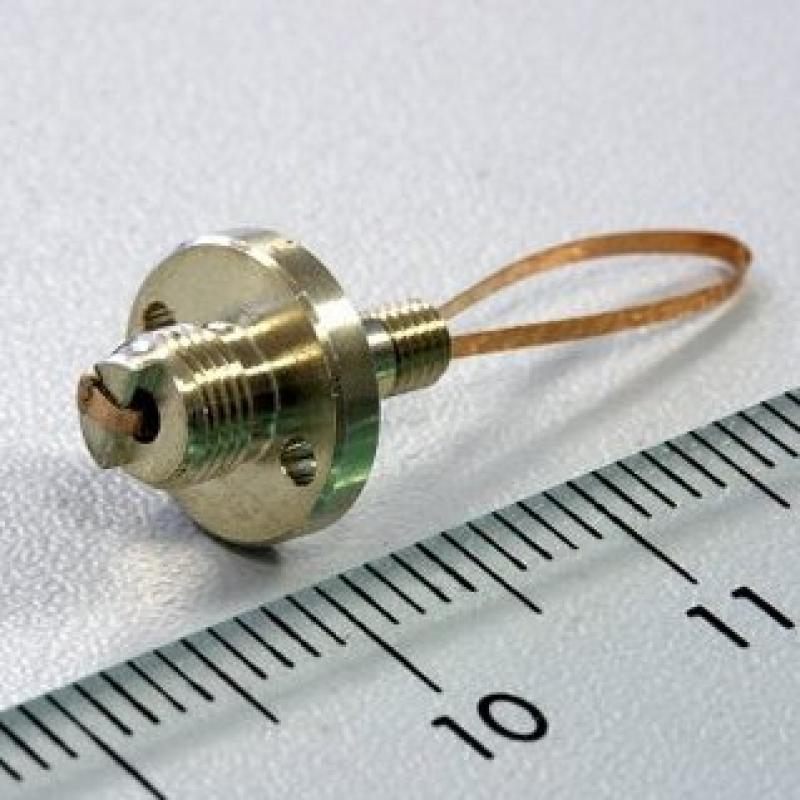
Beryllium-premium steel joint
Laser welding of titanium with inert gas – the key facts summarized
In close cooperation with our customers, we offer the following quality assurance procedures: Strength test (tensile testing and torsion test), macrosection with measurement of penetration depth, optical and microscopic control with photo documentation, tightness test (overpressure test with test gas and leak detection spray or a qualitative hydrogen leakage test with a test probe, alternatively helium leakage test)
-
Maximum size:
1,000 mm x 1,000 mm
-
Minimum material thickness:
0.05 mm
-
Maximum material weight:
2,000 kg
-
Inert gas:
Argon with a purity of at least 99.998%
-
Titanium alloys:
ASTM grades 1 (e.g. 3.7025) to 5 (e.g. 3.7165)
-
Benefits:
Thermal effect that is lukewarm at most, high welding speed, various materials, no reworking, pinpoint energy exposure
-
Industries:
Medical technology, aviation industry, sensor technology, chemical industry
-
Further processing offer:
Laser cutting, HSC milling, laser marking, engraving, thread cutting, drilling, and turning
-
Surface refinements:
Lacquering, sandblasting, abrasive blasting, grinding, and brushing

